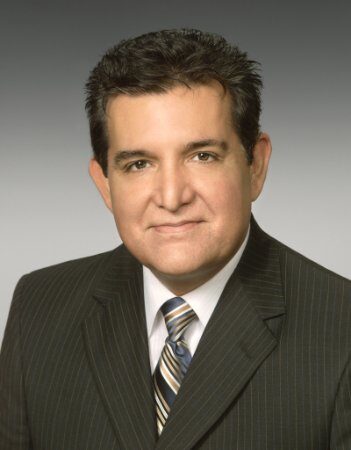
The world of commercial real estate comes with its own set of challenges, and taxes are often a significant concern for investors. Luckily, there is a powerful tool at your disposal – the 1031 exchange. In this ultimate guide, we will explore what a 1031 exchange is and how it can help you take control of your taxes in commercial real estate transactions. We will delve into the benefits, the process, tax advantages, requirements, common pitfalls, strategies for maximizing the benefits, potential alternatives, and even real-world case studies. By the end of this guide, you will have a comprehensive understanding of the subject and be better equipped to make informed decisions.
Understanding the Basics of 1031 Exchanges

A 1031 exchange is a powerful tax-deferral strategy that allows real estate investors to sell a property and reinvest the proceeds into a like-kind property without having to pay capital gains taxes immediately. By utilizing this strategy, investors can defer taxes and potentially reinvest a higher amount into a new property, maximizing their investment potential.
To be eligible for a 1031 exchange, certain criteria must be met. The property being sold, and the property being acquired must be of “like-kind,” meaning they are of the same nature or character. They can differ in quality, location, or other aspects as long as they are both for productive use in a trade or business or investment properties.
steps involved in a successful 1031 exchange:
Step 1: Identifying the replacement property
Step 2: Initiating the exchange
Step 3: Selling the relinquished property
Step 4: Acquiring the replacement property
Step 5: Completing the exchange
TAX ADVANTAGES OF USING A 1031 EXCHANGE

One of the most significant advantages of a 1031 exchange is the ability to defer capital gains taxes. By reinvesting the proceeds into a like-kind property, investors can postpone paying taxes until they eventually sell the replacement property.
By deferring capital gains and postponing depreciation recapture, investors can make the most of their investment without the burden of immediate taxes, allowing their money to continue working and growing.
.
Requirements and Restrictions to Consider
While a 1031 exchange provides many advantages, investors must be aware of certain requirements and restrictions. Time limits are crucial – investors have 180 days from the sale of the relinquished property to acquire the replacement property fully (i.e., close escrow). Additionally, within the first 45 days of the sale, investors must identify potential replacement properties (e.g., Three-Property Rule).
It’s important to note that not all types of properties are eligible for a 1031 exchange. Primary residences, stocks, and bonds, for example, do not qualify. Only investment properties such as property used in a trade or business, commercial real estate, rental properties, and land can be utilized in a 1031 exchange.
COMMON PITFALL AND HOW TO AVOID THEM
While a 1031 exchange can be incredibly beneficial, there are common pitfalls that investors must be aware of and avoid. Failing to properly identify replacement property within the 45-day timeframe can lead to disqualification of the exchange. Careful planning and consideration are necessary to ensure potential replacement properties are identified promptly.
Prohibited transactions, such as using a 1031 exchange to flip properties for short-term gains, can also disqualify the exchange. The 1031 exchange should be used as a long-term investment strategy.
Finally, investors must use a qualified intermediary to handle the funds during the exchange. Attempting to handle the proceeds themselves or involving disqualified people could result in disqualification.
STRATEGIES FOR MAXIMIZING THE BENEFITS OF 1031 EXCHANGE

A 1031 exchange opens up various strategies for investors to maximize their benefits:
Diversifying your real estate portfolio is an effective way to spread risk and potentially increase overall returns. By exchanging properties in different locations or property types, investors can gain exposure to new markets and opportunities.
Upgrading to higher-value properties can be achieved through a 1031 exchange. By selling multiple lower-value properties and combining the proceeds, investors can acquire a more valuable property with increased income potential.
Consolidating properties for better management is another strategy. Instead of juggling multiple properties, investors can exchange them for a single, larger property that requires less maintenance and management.
Working with Professionals in a 1031 Exchange
Navigating the complexities of a 1031 exchange requires expertise and guidance from professionals specialized in this strategy. Real estate agents who are well-versed in 1031 exchanges can assist in identifying potential replacement properties. Tax advisors and accountants experienced in working with 1031 exchanges can ensure compliance with IRS regulations and maximize tax benefits.
Conclusion
A 1031 exchange is a powerful tool that allows investors to take control of their taxes and maximize their investment potential in commercial real estate transactions. By deferring capital gains taxes and depreciation recapture taxes, investors can reinvest a higher amount into like-kind properties, leading to increased income and long-term returns. Careful planning, compliance with IRS regulations, and working with knowledgeable professionals are essential to successfully executing a 1031 exchange.
ask alfred

alfred sandoval
Broker-associate, cips, cpa, mba
Can I use a 1031 exchange for my primary residence?
No, primary residences are not eligible for a 1031 exchange. This tax strategy is specifically designed for properties used in a trade or business or investment properties.
Are there time limits for completing a 1031 exchange?
Yes, there are strict time limits. The rule used the most is the “Three-Property Rule” which gives you have 45 days to identify potential replacement properties (close escrow on one of them) and 180 days to complete the exchange fully (close escrow).
Do I need a qualified intermediary for a 1031 exchange?
Yes, a qualified intermediary is necessary to facilitate the exchange and hold the funds during the process. Directly handling the proceeds can disqualify the exchange.
Can I exchange a commercial property for a residential property (i.e., Personal Residence) in a 1031 exchange?
No, both the relinquished property and the replacement property must be of like kind, meaning they are of the same nature or character, which typically refers to property used in a trade or business or investment properties.
Are there alternatives to a 1031 exchange?
Yes, alternatives include Delaware Statutory Trusts (DSTs), Real Estate Investment Trusts (REITs), and Private Placement Offerings (PPOs), each with its advantages and considerations.

